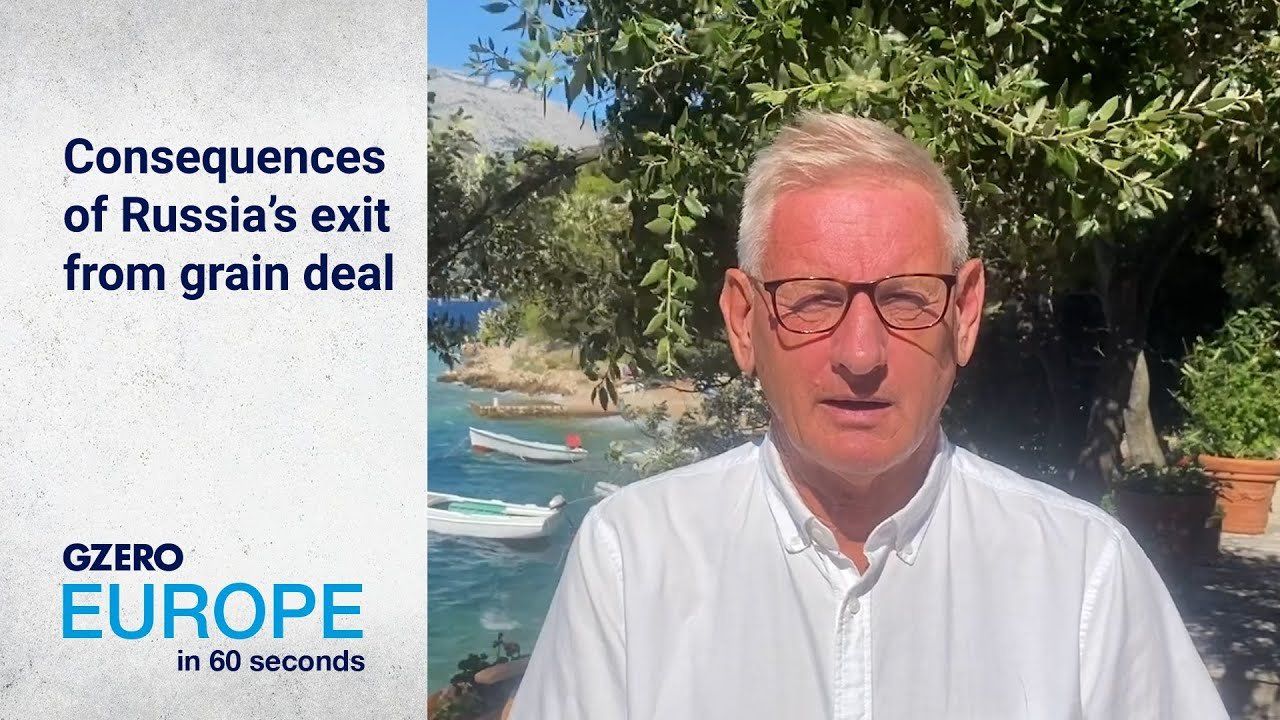GZERO Europe
Russia's exit from Black Sea grain deal will drive up food prices

Russia's exit from Black Sea grain deal will drive up food prices | Europe In: 60 | GZERO Media

Carl Bildt, former prime minister of Sweden, shares his perspective on European politics.
What are the consequences of Russia exiting the Black Sea grain deal?
Severe, no question about that. It is obvious that Russia intends to completely stop all Ukraine grain exports over the Black Sea anyhow, as far as they can. It's not only exiting the agreement, it's also sustained attacks against the grain export terminals in Ukraine, and also those very close to the border with Romania. Upward pressure on global food prices, no question about that, that's going to be the consequences, and Russia is responsible.
How is the Ukrainian counteroffensive going?
Well, it's a hard slog. These areas have been extensively fortified and mined by the Russians, and we should also be aware of the fact that the Ukrainian army and the Russian army today is a different army. There's a lot of mobilized people, they have training for just some months. So I think it is going to take some time. So give it a month, or somewhat more than that, and we can make a more accurate assessment of how far they can achieve.
1,170: The number of high-rise buildings in Kyiv that were left without heating following a barrage of Russian attacks last night on Ukraine’s capital and its energy facilities, per Kyiv Mayor Vitali Klitschko.
U.S. President Donald Trump and Japanese Prime Minister Sanae Takaichi hold up signed documents regarding securing the supply of critical minerals and rare earths, at a bilateral meeting at Akasaka Palace in Tokyo, Japan, October 28, 2025.
Representatives from the European Union, United Kingdom, Japan, and others will meet in Washington this week to discuss a strategic alliance on critical minerals.
80,000: The number of people estimated to be in the streets of Czechia on Sunday to show their support for President Petr Pavel after he blocked the nomination of an environmental minister who performed the Nazi salute and posted Nazi memorabilia.
The US has started handing $1,000 to the bank accounts of newborn babies. But can policies like this one help boost sagging birthrates in advanced democracies?